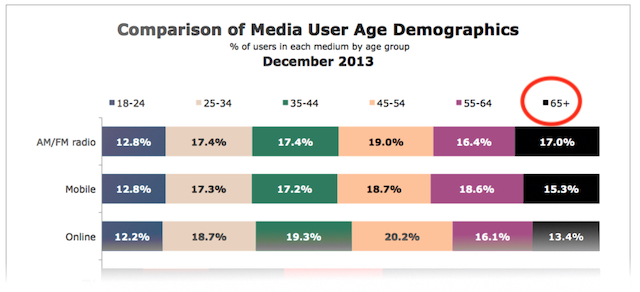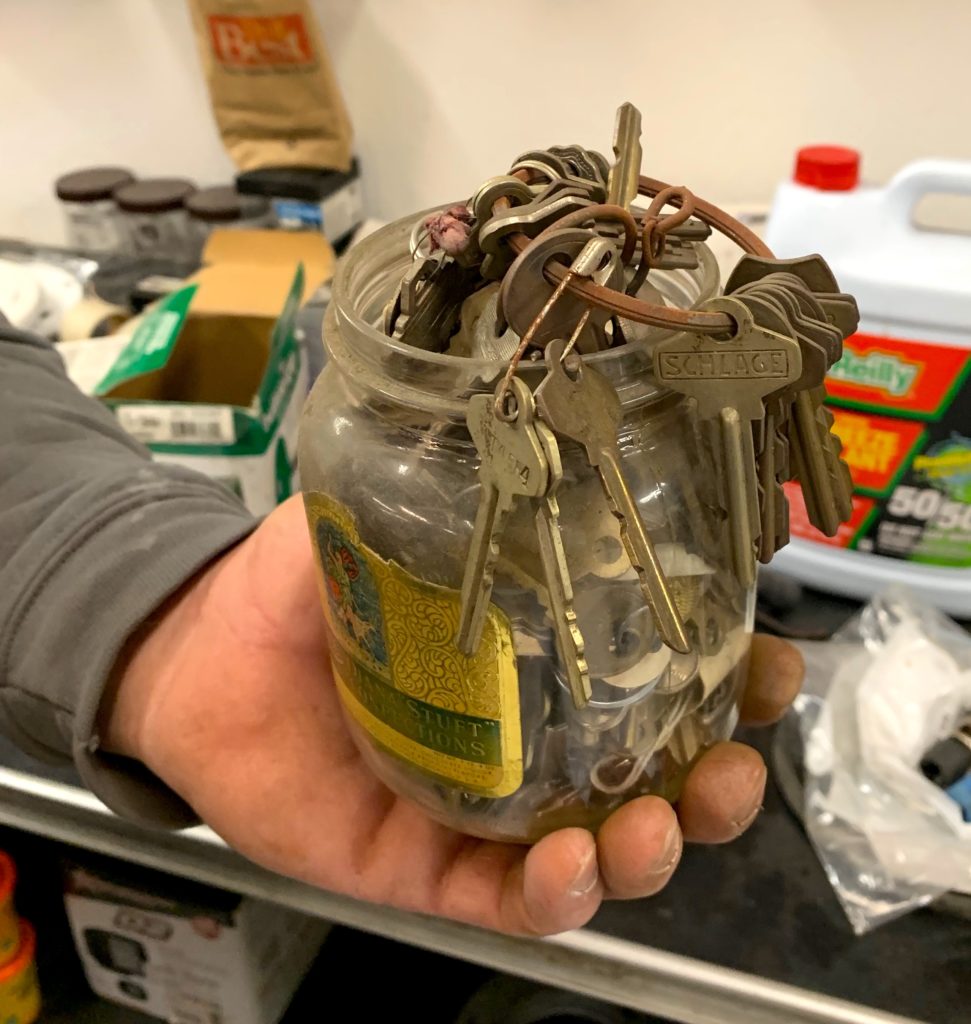
We are the sum of what we stuff in rented storage units. I’m considering renting one and leaving it empty.
Category Archives: Miscellany
1,000 Days
 I started keeping track of consecutive days on the (meditation) cushion on December 4, 2014. As of today, May 31, 2019, I’ve missed just two of the last 1,638 days. Today is the 1,000th consecutive day on the cushion. The only day that really counts, of course, is today. But I’ve found that logging my meditation practice helps me be consistent, something I do every day. And I can’t think of anything else I’ve done every day for 1,000 days.
I started keeping track of consecutive days on the (meditation) cushion on December 4, 2014. As of today, May 31, 2019, I’ve missed just two of the last 1,638 days. Today is the 1,000th consecutive day on the cushion. The only day that really counts, of course, is today. But I’ve found that logging my meditation practice helps me be consistent, something I do every day. And I can’t think of anything else I’ve done every day for 1,000 days.
I look forward to my daily meditation. I average 45 minutes a day but time really seems to stand still. One of my favorite things about the practice.
Manly Scents
I don’t wear cologne but have an idea for a line of “manly scents.”
- Model Airplane Glue
- Marks-A-Lot
- New Car
- BBQ Chicken Wings (Dry Rub)
- Mimeograph
65+
When people ask my age, I’ll tell them “65 Plus.” After 65, nobody cares how old you are. Media rating services like Arbitron and Nielson have nice, easy-to-remember categories…that stop at 65. So no more birthdays. I’m 65+. It’s really the last age that matters. (Medicare, Social Security, etc)
I’ve reached the age where contemporaries start dying. God’s mortar shells landing ever closer. John D. MacDonald described it best in Pale Gray for Guilt.
“Picture a very swift torrent, a river rushing down between rocky walls. There is a long, shallow bar of sand and gravel that runs right down the middle of the river. It is under water. You are born and you have to stand on that narrow, submerged bar, where everyone stands. The ones born before you, the ones older than you, are upriver from you. The younger one stand braced on the bar downriver. And the whole long bar is slowly moving down that river of time, washing away at the upstream end and building up downstream.
It’s hard to be part of the 65+ demo and not have a sense of your own mortality. I like Scott Adams’ take.
“…we’re a simulated (programmed) world left behind by advanced humanoids that shed their bodies billions of years ago. Our simulated world is the closest they could come to immortality. They were romantics, much like ourselves, and couldn’t stand the thought of being separated from their loved ones for eternity. So in our programmed little world, when we feel a special connection to another, it’s because we knew that person when we were real, and the program allows us to feel it again as if new. Thus, when you meet your soul mate, it is a reunion of sorts. And it will happen over and over, in each subsequent life the program provides for you.”
But Paul Simon said it best for my money.
Clio Cafe, Salisbury, MO
“The land where Salisbury is now located was first owned by Prior Bibo, a veteran of the War of 1812, in the late 1820s. A tract of 320 acres was granted to Bibo by the U.S. government as a bonus for his military service. Following two intermediate owners, the land was sold for $400 to Judge Lucius Salisbury in 1856. He had surveyors lay out the town plat in 1857, and the town was founded on April 1, 1867. The city has had a post office since 1863, when Judge Salisbury opened it in his home. He also ran the stagecoach stop from his business, known as “Shop-A-While.” (Wikipedia)
If you care about your thoughts, keep them
From an article by Derek Sivers on the benefits of a daily diary:
“Years from now you might be looking back, wondering if you were as happy or as sad as you remember during this time. […] We so often make big decisions in life based on predictions of how we think we’ll feel in the future, or what we’ll want. Your past self is your best indicator of how you actually felt in similar situations. So it helps to have an accurate picture of your past. […] You can’t trust distant memories. But you can trust your daily diary. It’s the best indicator to your future self (and maybe descendants) of what was really going on in your life at this time.”
Freedom Points
“Every time you generate data, in whatever form, you accrue more Freedom Points. Some data is more valuable than other, so points would be ranked accordingly: a trip to Moscow, say, would be worth a million times more points than your trip to the 7-Eleven. Well then, what do Freedom Points allow you to do? They would allow you to exercise your freedom, your rights and your citizenship in fresh modern ways: points could allow you to bring extra assault rifles to dinner at your local Olive Garden restaurant. A certain number of Freedom Points would allow you to erase portions of your criminal record — or you could use Freedom Points to remove hours from your community service. The thing about Freedom Points is that if you think about them for more than 12 seconds, you realise they have the magic ring of inevitability. The idea is basically too dumb to fail. The larger picture is that you have to keep generating more and more and more data in order to embed yourself ever more deeply into the global community. In a bold new equation, more data would convert into more personal freedom.”
Imaginary use of data from a 2015 article by Douglas Coupland
Trivia
“In the 1960s, nostalgic college students and others began to informally trade questions and answers about the popular culture of their youth. The first known documented labeling of this casual parlor game as “Trivia” was in a Columbia Daily Spectator column published on February 5, 1965.” (Wikipedia)
By the early 70’s “Trivia” had really caught on with my crowd. We prided ourselves on knowing the names of all of the actors in the Superman TV series and, initially, the only way to know this was to watch the credits and remember. No easy way to “look it up.” But by the early-to-mid 70’s trivia books were being published.
“The People’s Almanac was a series of three books published in 1975, 1978 and 1981 by David Wallechinsky and his father Irving Wallace, the novelist responsible for co-authoring the series The Book of Lists. The format of the almanac departs from a conventional almanac and included many obscure facts, lists and esoteric knowledge.” (Wikipedia)
In 1977 the first Book of Lists was published, one of a series of books compiled by David Wallechinsky, his father Irving Wallace and sister Amy Wallace. Each book contains hundreds of lists (many accompanied by textual explanations) on unusual or obscure topics, for example:
- Famous people who died during sexual intercourse
- The world’s greatest libel suits
- People suspected of being Jack the Ripper
- Worst places to hitchhike
- People misquoted by Ronald Reagan
- Breeds of dogs which bite people the most, and the least
Trivial Pursuit (the game) came out in 1979 but it never caught on with our crew. Too… structured. Our trivia sessions were more free-form, sort of nerd rap.
During my radio period I co-hosted a daily talk show and once a month we brought in a couple of other folks and opened up the phone lines for trivia questions from listeners (Trivia Bowl). I can’t imagine how trivia could still be a thing in a world of Google and mobile phones. But it was fun while it lasted.
Keys
This jar of keys is a family heirloom, handed down from grandfather to father to son. Most of the keys, as I understand the story, were to apartment doors and mailboxes. The family owned apartment buildings and when a tenant got locked out the landlord would come with this jar of keys and and try them, one at a time, until he found the right key. At some point family members tried to bring a little order to this chaos by numbering the keys but the system never caught on. Somewhere — in a door or a landfill — there are locks for each of these keys.
800 Days
 Yesterday was the 800th consecutive day on the cushion. I started meditating ten years ago but didn’t begin keeping a log of my daily practice until 2014. I’ve only missed two days in those four years. In all my reading about meditation there is general agreement it should be a daily practice. I sit for 30-45 minutes.
Yesterday was the 800th consecutive day on the cushion. I started meditating ten years ago but didn’t begin keeping a log of my daily practice until 2014. I’ve only missed two days in those four years. In all my reading about meditation there is general agreement it should be a daily practice. I sit for 30-45 minutes.



